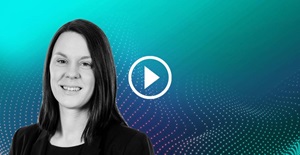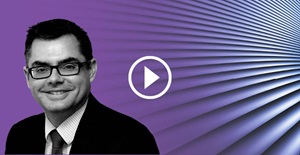What are the sick pay rules for employees who are self-isolating but who have not been double-jabbed? What if employees have been double-jabbed but choose not to come to work? This minefield was meant to have been cleared last month, on 16 August, when the government relaxed the rules, but, if anything, the picture is even more confused.
From 16 August the rules changed so that people who are double-jabbed are no longer legally required to self-isolate even if they are identified as being in close contact with a positive COVID-19 case. The change was announced as part of step 4 of the government’s COVID-19 roadmap. That rule change was welcomed by employers at the time because it meant fewer people being required by law to self-isolate, with the cost of sick pay associated with that. The rules around statutory sick pay have kept pace with the changes to the roadmap but, of course, company sick pay is a different matter with many offering pay above the statutory minimum, or even full pay, depending on the circumstances. So it’s complicated and many of our clients have been struggling.
So let’s hear more about it from one of the lawyers advising on this on a daily basis. Anne Sammon joined me by video-link to discuss this. I started by asking Anne to explain the problem with sick pay for self-isolating employees who have not been double-jabbed:
Anne Sammon: “So the rules changed on the 16th of August which means that anyone who has been double jabbed doesn't have to self-isolate just because they come into close contact with somebody who has been positively tested for COVID. That means that there's a discrepancy between those who have been double jabbed and those who haven't. So, anyone who hasn't been double jabbed has to self-isolate, still, in the same way that we all used to, where they come into contact with someone who's had COVID-19. So, from an employer perspective that means that there is a cost associated with people not being double jabbed because if they come into close contact with somebody the employer will have to fund their sick pay for that period and one of the issues that we've seen come up in recent weeks is around whether it's fair for employers to bear that cost or whether, in that situation, employees should just receive statutory sick pay.”
Joe Glavina: “So we have lots of people with very different circumstances – some vaccinated fully, some not at all, and it’s complicated. It must be tempting for managers to simplify things and apply company rules across the board which they might see as a fair way to deal with it. Is there a discrimination risk with that approach?
Anne Sammon: “So there is absolutely a discrimination risk because there are lots of different reasons why some people will have been vaccinated and others won't have been. For example, we know that ethical vegans may object to the vaccination on the basis that it has been tested on animals and so if you were to say ‘we're not going to pay full sick pay for the period of leave that you have to have because you have to self-isolate there is a risk that somebody might run an indirect discrimination argument because you'd be treating everybody in the same way and say that the policy was discriminatory. So, any employer that's considering implementing this type of policy is likely to need to think through what the carve outs to the policy might be.”
Joe Glavina: “This is complicated. Some people have been double-jabbed, some single-jabbed others have, for whatever reason, not been vaccinated at all. So how do you manage that? Do clients have policies which guide managers what to do?”
Anne Sammon: “So, I haven't seen many policies around this at all because it is so complicated and there are various different factors that come into play some of which managers might not be aware of, some of which just the HR team will be aware of. So, my experience has been that HR tend to be the people making the decisions and then implementing the client’s practices rather than that being delegated down to managers. I think there are lots of difficult issues in relation to this. The 16th of August, when these rules changed, was seen to be a kind of game changer in terms of limiting numbers of people that needed to self-isolate but, actually, it has caused more issues for employers than they had previously because, as well as the issue about ‘you don't have to self-isolate if you've been double vaccinated but you do if you haven’t’ we've also seen individuals raise issues around ‘well I don't have to self-isolate because I have been double vaccinated but actually I'm concerned because the government guidance for those who are clinically extremely vulnerable talks about avoiding certain types of people and I'm concerned that I might have COVID because I've come into contact with somebody who has COVID, I've been double vaccinated but I know that I can still transmit COVID and therefore if I come into the office and pass on to somebody who's clinically extremely vulnerable in my team, you know, I think that that's morally the wrong thing to do’. So actually the 16th of August piece has raised more issues for employers than it actually solved.”
Joe Glavina: “Final question, Anne. I know some of your clients will be managing the situation well and others not so well. Taking those businesses that are coping, what is it that HR is doing well?”
Anne Sammon: “I think the first thing is understanding the employee population to understand what their concerns will be. So, the concerns will vary depending on the demographic of the workforce. Some organisations have lots of employees who are very concerned about catching COVID and so they may be taking slightly different measures in terms of saying, well, actually, if you do come into close contact with somebody who is COVID positive then maybe you might want to think about working from home for a period of time or maybe we might allow you to spend a period of time on sick pay, even though we don't have to. I think that's the key thing. It's about understanding what your employee's concerns might be, and what their drivers are, so that you can make sure that your policies fit their needs.”
In case you missed it, Anne appeared in this programme just last week talking about the wave of new data and AI guidance that is on its way from two of the UK’s regulators, the Information Commissioner’s Office and the Equality and Human Rights Commission. That programme is ‘New AI and data guidance must be 'properly understood' by HR’ and is available for viewing now from the Outlaw website.
Out-Law / Your Daily Need-To-Know
Change to self-isolation rules for double-jabbed ‘muddied the water’
14 Sep 2021, 8:38 am
Anne Sammon tells HRNews about the payment of sick pay to doubled-jabbed employees who choose to self-isolate

-
Transcript


